








Delamere Health
This provider's information has been quality-checked by Recovery.com's Research Team for accuracy and completeness, including center verification through appropriate third-party organizations.
Treatment Focus
You can admit to this center with a primary substance use disorder or a primary mental health condition. You'll receive support each step of the way and individualized care catered to your unique situation and diagnosis.
Primary Level of Care
Offering intensive care with 24/7 monitoring, residential treatment is typically 30 days and can cover multiple levels of care. Length can range from 14 to 90 days typically.
Treatment Focus
You can admit to this center with a primary substance use disorder or a primary mental health condition. You'll receive support each step of the way and individualized care catered to your unique situation and diagnosis.
Primary Level of Care
Offering intensive care with 24/7 monitoring, residential treatment is typically 30 days and can cover multiple levels of care. Length can range from 14 to 90 days typically.
Private Pay
You pay directly for treatment out of pocket. This approach can offer enhanced privacy and flexibility, without involving insurance. Exact costs vary based on program and length of stay. Contact the center for specific details.
Delamere Health
Delamere Health
About Delamere Health
Delamere Health is a place to recover and re-calibrate, situated on 6 acres of the magnificent Delamere Forest in Cheshire. They treat addiction as well as depression, burnout, and other mental health conditions. Delamere Health uses a 4-point recovery programme, helping clients Stop, Start, Grow, and Bloom. Each point addresses different stages of recovery for lasting success. A blend of holistic, medical, and evidence-based treatment give each client the personalised care they need and deserve–all in a luxurious and restorative setting.
Comprehensive Care for Whole-Person Health
Delamere Health offers top-notch, tailored therapy for substance use disorders, process addictions, mental health issues, and eating disorders. They treat substance addictions and behavioural addictions like gambling and gaming. Delamere Health’s clinical team helps make detox as comfortable as possible, if detox is needed. They also provide 12 months of aftercare services after inpatient care at no extra cost.
Holistic Healing
Using a holistic approach, Delamere Health treats clients in mind, body, and spirit. Holistic therapies include art therapy, dance therapy, family counselling, and relapse prevention. Delamere Health also provides equine therapy, fire ceremonies, and movie nights. Clients can use Delamere Health’s gym and health studio to stay physically well. Clients are also welcome to bring their electronic devices, with Delamere Health only asking devices be put away during sessions.
Eating Disorder Treatment
Delamere Health provides individualised eating disorder treatment, helping clients with anorexia nervosa, bulimia nervosa, and binge eating disorder. Their programming looks at both the mind and body to heal eating disorders, using their Stop, Start, Grow, and Bloom model. Compassionate staff guide clients through recovery in a safe environment, free of distractions. Clients engage with therapists and nutritionists to build a healthy mindset and meals. Delamere Health prioritises boundary setting to give clients tools for last recovery.
Recover And Refresh in Peace
Private bedrooms provide relaxing accommodations with en-suite bathrooms. On site, clients can enjoy a garden and fitness center. A minimum of 4 individual sessions per week with their counsellor and group meetings complement Delamere Health’s peaceful and restorative setting. Forest views and privacy further complement treatment. In the Northern Design Awards, the purpose-built clinic was recently named Best Amazing Space.

Highlights from the Center
Highlights
These highlights are provided by and paid for by the center.
Equine Therapy
Customized Treatment Plans
Holistic Approach
Perfect for Professionals
Center Overview
Treatment Focus
You can admit to this center with a primary substance use disorder or a primary mental health condition. You'll receive support each step of the way and individualized care catered to your unique situation and diagnosis.

Pricing and Program Length
Estimated Center Costs
The cost listed here (£19,500 / 28 days), is an estimate of program cost. Center price can vary based on program and length of stay. Contact the center for more information. Recovery.com strives for price transparency so you can make an informed decision.
Recovery.com Verified Listing
Recovery.com verified that the name, location, contact information and license to operate for this treatment provider are valid and up-to-date.

CQC Rating: Good
Recovery.com is an independent, third-party mental health resource. Verification does not imply endorsement and does not guarantee the quality of treatment services.
Meet your care team

Martin Preston
Founder & Chief Executive

Professor Sir Cary Cooper
Advisory Board Member
CBE

Mike Delaney
Clinical Director
Reg MBACP, Fellow ACCPH, CCTP

Edward Preston
Finance Director
ACA Certified Chartered Accountant

Dr. Catherine Carney
Psychiatrist
MBChB, MSC Hons

Sue Buckley
Wellbeing Guide

Adam
Recovery Mentor
Counselling Concepts Level 2, Peer Mentor Training, Recovery Coaching Group Facilitation, Health & Social Care Level 2, First aid trained

Alex Molyneux
Enquires Manager
HND in Business Studies

Mandy Donnison
Office Manager
LCCI Executive Secretarial Diploma

Karen
Addiction Therapist
Psychotherapeutic Counselling Professional Diploma, Diploma in Hypnotherapy, Certified Clinical Trauma Professional
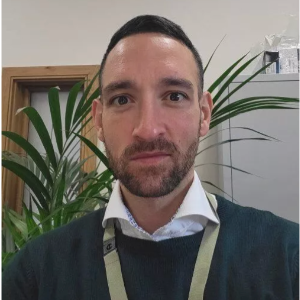
Youssef Spiro
Registered Manager & Development Director
Psychology [Bsc]- Degree

Ann Rowlands
Housekeeper
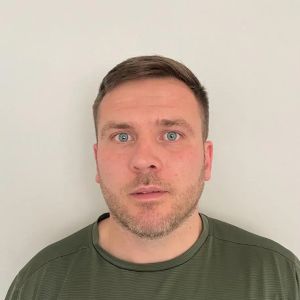
Gary Sullivan
Recovery Mentor
Level 2 Counselling Diploma

Jerome Fagan
Recover Mentor

Jess
Guest Liaison Manager
BSc in Criminology and Psychology

Liza Mottram
Head Housekeeper
NVQ Level 3 in Care, First aid training

Megan Winnington
People Project Coordinator
BA (hons) Primary Education with QTS (Qualified Teacher Status)

Melissa Myatt
Admissions Coordinator
Psychology Bsc (hons) Certificate in Health & Social Care

Natalie Pearson
Registered Nurse
BSc (Hons) Adult Nursing

Sally Hopkins
Recovery Mentor
Safeguarding L4
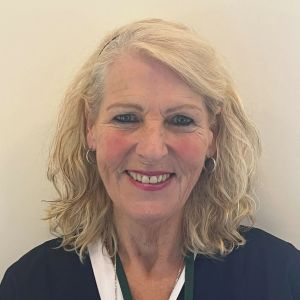
Sheila Bonehill
Registered General Nurse
Registered General Nurse, Registered Manager

Alex Atwell
Head of People and Culture
The Gap Partnership – Negotiation Training, IOSH – Leading Safely CIPD

Andy Rowland
Maintenance

Steph Massey
Head of Clinical Care
Registered Nurse

Paige Lindsay-Keegan
Addiction therapist
BSc Hons in Counselling and Psychotherapy: professional practice

Sarah Albiston
Guest Liaison Support
Level 3 -Introduction to counselling, Level 2 in Counselling. ILS – Immediate Life Support

Neil Baxter
Chef de parti

Lucy Bjerkan
Registered Nurse
Masters in Mental Health Nursing

Chris Cooke
Head Chef

Kelly Cooper
Guest Liaison Support

Mel Craghill
Well-Being Guide
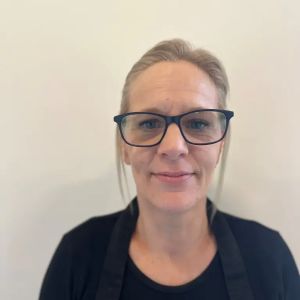
Rowan Gilliver
Kitchen Porter

Fiona Peacock
Addiction Therapist
BACP Accredited Counsellor
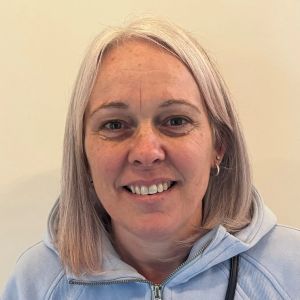
Sue Fenton
Commis Chef
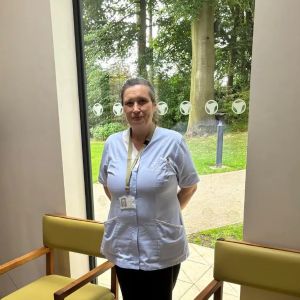
Joanne Bishop
Wellbeing Guide

Lesley Beattie
Kitchen Porter
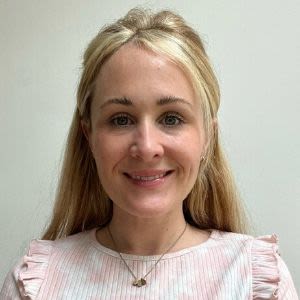
Charlotte Lillie
Head of Admissions

Nicola Bell
Wellbeing Guide

Michelle Farrell
Registered Nurse




Treatment
Specializations
Anxiety
Anxiety is a common mental health condition that can include excessive worry, panic attacks, physical tension, and increased blood pressure.
Depression
Symptoms of depression may include fatigue, a sense of numbness, and loss of interest in activities. This condition can range from mild to severe.
Co-Occurring Disorders
A person with multiple mental health diagnoses, such as addiction and depression, has co-occurring disorders also called dual diagnosis.
Drug Addiction
Drug addiction is the excessive and repetitive use of substances, despite harmful consequences to a person's life, health, and relationships.
Trauma
Some traumatic events are so disturbing that they cause long-term mental health problems. Those ongoing issues can also be referred to as "trauma."
Alcohol
Using alcohol as a coping mechanism, or drinking excessively throughout the week, signals an alcohol use disorder.
Burnout
Burnout entails mental and physical exhaustion, and leads to a severe lack of fulfillment. This condition is often caused by overwork.
Who We Treat
LGBTQ+
Addiction and mental illnesses in the LGBTQ+ community must be treated with an affirming, safe, and relevant approach, which many centers provide.
Executives
Executive treatment programs typically directly support the needs of people who manage businesses and may provide flexible schedules and office space to allow work during treatment.
Mild Disabilities
Adults with mild physical or intellectual disabilities receive treatment catered to their specific needs in a safe and clinically supportive environment.
Professionals
Busy, high-ranking professionals get the personalized treatment they need with greater accommodations for work, privacy, and outside communication.
Treatment Services
Residential
In a residential rehab program, patients live onsite, with access to daily treatment and 24-hour care. An average stay is 30-90 days.
Licensed Primary Mental Health
Some primary care providers offer mental health diagnosis and treatment. This can prevent patients from developing more serious conditions.
Detox
Detox fully and safely removes toxic substances from the body, allowing the next steps in treatment to begin with a clean slate.
Approaches
Personalized Treatment
The specific needs, histories, and conditions of individual patients receive personalized, highly relevant care throughout their recovery journey.
Holistic
A non-medicinal, wellness-focused approach that aims to align the mind, body, and spirit for deep and lasting healing.
Evidence-Based
A combination of scientifically rooted therapies and treatments make up evidence-based care, defined by their measured and proven results.
Individual Treatment
Individual care meets the needs of each patient, using personalized treatment to provide them the most relevant care and greatest chance of success.
Therapies
Stress Management
Patients learn specific stress management techniques, like breathing exercises and how to safely anticipate triggers.
1-on-1 Counseling
Patient and therapist meet 1-on-1 to work through difficult emotions and behavioral challenges in a personal, private setting.
Family Therapy
Family therapy addresses group dynamics within a family system, with a focus on improving communication and interrupting unhealthy relationship patterns.
Equine Therapy
Guided interactions with trained horses, their handler, and a therapist can help patients improve their self-esteem, trust, empathy, and social skills.
Twelve Step Facilitation
12-Step groups offer a framework for addiction recovery. Members commit to a higher power, recognize their issues, and support each other in the healing process.
Psychoeducation
This method combines treatment with education, teaching patients about different paths toward recovery. This empowers them to make more effective decisions.
Conditions We Treat
Post Traumatic Stress Disorder
PTSD is a long-term mental health issue caused by a disturbing event or events. Symptoms include anxiety, dissociation, flashbacks, and intrusive thoughts.
Chemsex
Also called Party 'n' Play (PnP), chemsex refers to using drugs, like methamphetamine, to enhance sexual activity.
Anxiety
Anxiety is a common mental health condition that can include excessive worry, panic attacks, physical tension, and increased blood pressure.
Depression
Symptoms of depression may include fatigue, a sense of numbness, and loss of interest in activities. This condition can range from mild to severe.
Grief and Loss
Grief is a natural reaction to loss, but severe grief can interfere with your ability to function. You can get treatment for this condition.
Codependency
Codependency is a pattern of emotional dependence and controlling behavior. It's most common among people with addicted loved ones.
Pornography Addiction
A person with a porn addiction is emotionally dependent on pornography to the point that it interferes with their daily life and relationships.
Gambling
Excessive, repetitive gambling causes financial and interpersonal problems. This addiction can interfere with work, friendships, and familial relationships.
Internet Addiction
Internet addiction is common among children teens. This compulsive disorder can damage relationships, school performance, sleep habits, and physical health.
Stress
Stress is a natural reaction to challenges, and it can even help you adapt. However, chronic stress can cause physical and mental health issues.
Substances We Treat
Cocaine
Cocaine is a stimulant with euphoric effects. Agitation, muscle ticks, psychosis, and heart issues are common symptoms of cocaine abuse.
Prescription Drugs
It's possible to abuse any drug, even prescribed ones. If you crave a medication, or regularly take it more than directed, you may have an addiction.
Benzodiazepines
Benzodiazepines are prescribed to treat anxiety and sleep issues. They are highly habit forming, and their abuse can cause mood changes and poor judgement.
Ecstasy
Ecstasy is a stimulant that causes intense euphoria and heightened awareness. Abuse of this drug can trigger depression, insomnia, and memory problems.
Co-Occurring Disorders
A person with multiple mental health diagnoses, such as addiction and depression, has co-occurring disorders also called dual diagnosis.
Psychedelics
Hallucinogenic drugs—like LSD—cause euphoria and increased sensory experiences. When abused, they can lead to depression and psychosis.
Drug Addiction
Drug addiction is the excessive and repetitive use of substances, despite harmful consequences to a person's life, health, and relationships.
Chronic Relapse
Consistent relapse occurs repeatedly, after partial recovery from addiction. This condition requires long-term treatment.
Languages
Aftercare
Experience
Personal Amenities
Amenities
Special Considerations
Flexible technology policies
Centers with flexible technology policies allow professionals to stay in touch with work and give patients a greater sense of connection and normalcy.
Activities
Yoga
Yoga is both a physical and spiritual practice. It includes a flow of movement, breathing techniques, and meditation.
Off-Site Activities

Learn More About the Center
Delamere in the Media
As a thought leader in the field of addiction treatment and behavioural health, Delamere regularly features in National publications and broadcast.
Mental Health
Read how Delamere's mental health rehab gets to the source of problems in order to overcome them.
The Delamere Treatment Model
Learn more about the key phases of treatment at Delamere.
Costs And What’s Included
See a clear-cut breakdown of pricing at Delamere and what’s included in each cost bracket.
What people are saying
Accommodations
Food & Nutrition
Treatment
Value
Pros
- Treated My Loved One With Respect (2)
- Supportive Aftercare (3)
- Beautiful Location (3)
- Luxurious Accommodations (2)
See More
Ray
TJ
Emma Williams
KV
Anonymous
We love hearing about your treatment experience
Help individuals and families seeking treatment by sharing your first-hand experience with this treatment provider. Review Guidelines.





